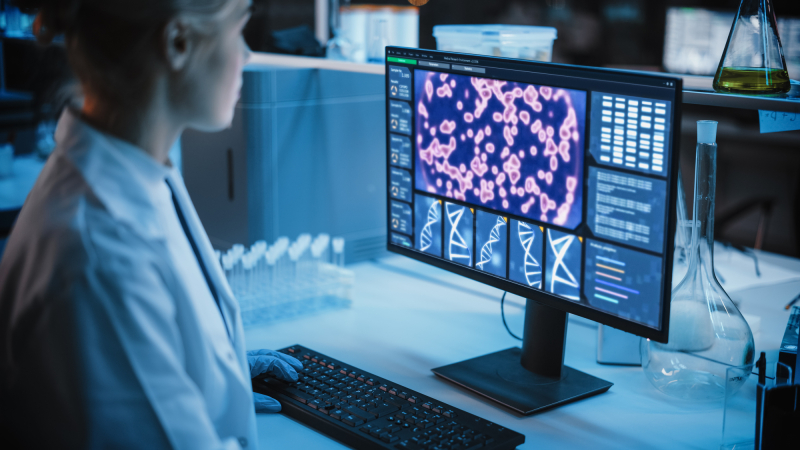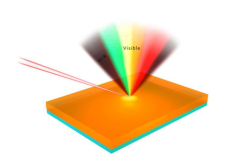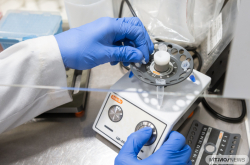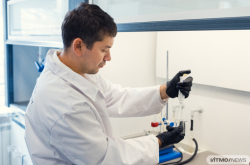Nanozymes are an affordable alternative to natural enzymes (complex protein compounds that accelerate and launch biochemical reactions in the body). The nanoparticles are stable and have a long shelf life; in addition, their catalytic activity can be regulated. Thanks to these properties, they are used in the treatment and diagnostics of oncological diseases, detection of environmentally hazardous materials, as well as in a capacity as biosensors in the food industry.
However, some properties of nanozymes are hard to predict or control, which complicates and raises the costs of their development. In order to solve this issue, researchers from ITMO’s Center for AI in Chemistry have developed an ensemble featuring several machine learning models; together, they calculate the main parameters of catalytic reactions. Earlier, the team had already worked on a similar problem, having developed a web platform now used in over 50 countries.
For their latest project, the researchers used a novel algorithm, expanded the list of nanoparticle compounds and their surface modifications, as well as equipped the platform with an LLM assistant developed in collaboration with students from ITMO’s AI Talent Hub. By expanding the algorithm’s database, the scientists were able to improve its accuracy: in this study, they have analyzed 1,200 samples from 400 papers, featuring 390 unique nanozyme compositions. With the platform, it’s possible to predict the velocity and other parameters of chemical reactions involving artificial enzymes.
“When our first solution received great feedback, we realized that we had to upgrade and improve it. Many conditions that can affect the results in real-world syntheses were not included in the first version, so we have expanded its capabilities by introducing a greater diversity of nanozyme compositions and types of catalytic activity,” explains the paper’s first author Julia Razlivina, a second-year PhD student at ITMO’s ChemBio Cluster.

Julia Razlivina. Photo courtesy of ITMO's Advanced Engineering School
At the moment, the team is developing algorithms for automatic database collection, which will help predict nanozyme properties with greater accuracy and efficiency.
This research is conducted within the Priority 2030 program of the Russian Ministry of Science and Higher Education.




